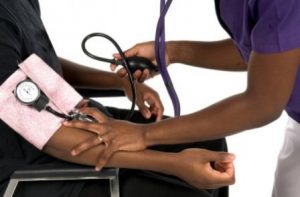Scientists discover how the body regulates high blood pressure
A breakthrough by British scientists could pave the way for more effective blood pressure drugs, The Mail Online reports.
Experts have discovered how the body regulates blood pressure – giving them a way to replicate it with medication.
They found the condition is naturally reduced when nerves which surround the arteries release nitric oxide.
Scientists last night said the discovery marks a ‘ fundamental change’ in the way they view blood pressure. Previously, experts thought it was regulated by the blood vessel walls themselves, rather than the bundle of nerves surrounding them.
The breakthrough also offers a clue about the role stress and emotion play in the condition, because these nerves have a direct link to the brain.
High blood pressure – known as ‘ hypertension’ – affects one in three adults, more than 17million of the British population. The condition vastly increases the risk of heart attacks, strokes and vascular dementia, but because it has no symptoms until it is too late, only half of those with the condition know they are at risk.
Of those who have been diagnosed, hundreds of thousands take daily pills to control their blood pressure. However, the current treatment is only effective for about half of patients.
The discovery, by scientists at King’s College London, could allow doctors to mimic the body’s method of regulating blood pre in which they used a drug to stop the nerves producing nitric oxide and found blood pressure rocketed as a result.
Professor Ajay Shah, head cardiologist at King’s College Hospital, said: ‘Our discovery will fundamentally change the way we view the regulation of blood pressure.
‘Until now the majority of blood pressure drugs have focused on other pathways.
‘Establishing that nerves releasing nitric oxide influence blood pressure provides a new target for drugs and could eventually lead to more effective treatments for patients.’
Professor Jeremy Pearson, associate medical director at the British Heart Foundation, which partfunded the research, said: ‘Whilst there are already many treatments for high blood pressure, they are not always effective.’
He added: ‘These results provide hope of new treatments for people with poorly controlled high blood pressure, which could prove crucial in preventing a heart attack or stroke.’
About author
You might also like
Depression comes to town, still the old story
Twenty-two years ago (how time flies), a multinational company introduced a new drug for the management of depression. It was the first of its kind and quite different from the
Henrietta Fore becomes new UNICEF Executive Director
Henrietta Fore has assumed office on January 1 as UNICEF’s seventh Executive Director. Ms. Fore brings to the role more than four decades of private and public sector leadership experience. “I am
Remove tariffs on essential drugs imports now – DICOMAI urges FG
Worried by the current high cost of drugs in the country, a media-based non-governmental organization, Diabetes Control Media Advocacy Initiative (DICOMAI) has called on the Federal government to remove import







0 Comments
No Comments Yet!
You can be first to comment this post!